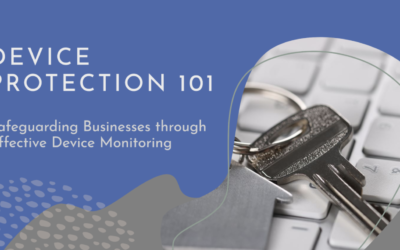As the world continues to adapt to the changing landscape of work, the concept of hybrid work has emerged as a popular model for many organizations. Hybrid work combines elements of remote work and in-person collaboration, allowing employees to have flexibility while also maintaining some level of face-to-face interaction. While this shift has brought numerous benefits, it has also presented unique challenges for IT management. In this post, we will explore the various ways hybrid work has impacted remote IT management and discuss strategies to navigate this new working model.
In a remote-only work environment, IT management was more focused on ensuring remote team members had the infrastructure, technology, and tools needed to do their jobs effectively. However, as we continue to transition into a hybrid work environment where some team members are working on-site while others are working remotely, IT management must ensure that the hybridity doesn’t cause communication or collaboration issues.
There are a few areas of IT Management concern that need to be addressed in good hybrid IT Management:
1. Loss of Control of Digital Assets
One of the significant impacts of hybrid work on IT management is the loss of control over digital assets. With teams working remotely and often using their own devices, IT managers are faced with the challenge of ensuring the security and integrity of company data. According to a recent study by Gartner, 70% of IT leaders reported a decrease in control over digital assets since the implementation of hybrid work. This loss of control requires IT managers to implement robust security measures, such as multi-factor authentication and encryption, to safeguard sensitive information.
The solution to this is to implement strict and comprehensive access protocols that ensure only authorized users can get to the sensitive data. Multi-factor authentication, least privilege access, and data loss prevention tactics are some of the ways to achieve this.
2. Increase in Security Concerns
Alongside the loss of control over digital assets, hybrid work has led to an increase in security concerns. Remote employees may not be as cautious about cybersecurity best practices when working from home compared to when they are in the office. This opens up opportunities for cybercriminals to exploit vulnerabilities and launch attacks. A survey conducted by Cisco revealed that 68% of IT professionals observed an increase in security breaches since the transition to hybrid work. To address this challenge, IT managers must prioritize security awareness training, regularly update software and systems, and implement strong application access security protocols.
3. Need for Efficient Communication
Effective communication has always been crucial in IT management, but the need for seamless communication has become even more critical in the era of hybrid work. Leaders must make sure they’re up-to-date with how team members are experiencing remote and on-site work and if they’re comfortable using technology tools. According to a survey conducted by Slack, 82% of IT professionals identified communication gaps as one of the top challenges in managing remote IT operations. To bridge these gaps, IT managers are leveraging collaboration tools, such as project management platforms, instant messaging apps, and video conferencing software, to facilitate efficient communication and ensure smooth workflow.
4. Enhanced Infrastructure and Scalability Demands
Hybrid work has resulted in increased demands for infrastructure and scalability in remote IT management. As more employees work remotely, IT managers must ensure that the company’s infrastructure can handle the additional load and provide seamless access to necessary resources. A report by Forrester predicts that by 2025, organizations will spend $19 billion on technologies that enable remote work. This includes investments in cloud-based solutions, virtual private networks (VPNs), and scalable IT systems. IT managers need to proactively assess and upgrade their infrastructure to meet the evolving needs of hybrid work.
5. Effective Remote Support
In a hybrid work environment, remote IT management also needs to ensure that there is a standardized support system in place to guarantee that remote and on-site employees receive quick IT assistance and support. This calls for a mechanism in place that can field and handle IT-related requests regardless of whether the employee who is facing the issue is working remotely or on-site. A helpdesk system can be an excellent solution. Robust helpdesk software that’s equipped with chat and email functionality should suffice.
There’s no denying that hybrid work is transforming the way businesses operate. In addition to its many benefits, it brings significant challenges that businesses must solve to thrive in a hybrid work environment. IT managers must navigate the loss of control over digital assets, address heightened security concerns, prioritize efficient communication, and meet enhanced infrastructure demands. By implementing proactive strategies and leveraging appropriate technologies, organizations can effectively manage their IT operations in the new era of hybrid work. Embracing these changes will not only ensure productivity and security but also foster a collaborative and flexible work environment for employees.
Here are the references for the information mentioned in the post:
Gartner Study
Gartner. (2022). Hybrid Work and the Future of Work. [Online]. Available: https://www.gartner.com/en/human-resources/insights/hybrid-work-and-the-future-of-work
Cisco Survey
Cisco. (2021). Future of Secure Remote Work. [Online]. Available: https://www.cisco.com/c/en/us/products/security/future-secure-remote-work-survey.html
Slack Survey
Slack. (2021). Remote Work in the New Normal. [Online]. Available: https://slack.com/resources/remote-work-trends-download
Forrester Report
Forrester. (2021). The Future of Work Infrastructure. [Online]. Available: https://www.forrester.com/report/The+Future+Of+Work+Infrastructure/-/E-RES166973



